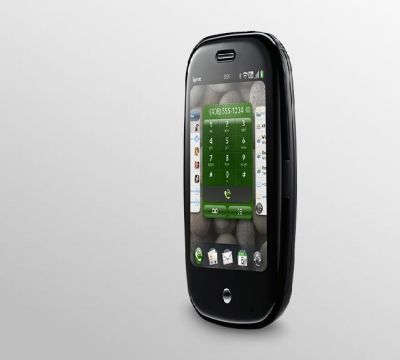Palm comeback falling short

A year ago, handheld devices pioneer Palm seemed poised for a comeback. Its new smartphone, the Palm Pre, had just won "Best in Show" at the annual gadget fair in Las Vegas and the company had high hopes that the Pre would help it recapture some of its former glory. It didn't happen.
Pre sales have been disappointing and shares in the Sunnyvale, California, firm took a beating last week falling 34.5 percent to close at 6.09 dollars on Friday.
Palm shares were pummelled after the company forecast third-quarter revenue of between 300 million dollars and 320 million dollars, far short of the 420 million dollars expected by Wall Street analysts.
As a result, Palm said it would be "well below" its annual revenue target of between 1.6 billion dollars and 1.8 billion dollars.
Palm came out with some of the first personal digital assistants in the 1990s, but in recent years it has been lagging behind rivals Nokia, Apple and Research in Motion (RIM), maker of the Blackberry.
The touchscreen Pre was seen as its best opportunity in years to win back a significant share of the highly competitive cellphone market but the weak sales have some analysts wondering about the company's future.
"Palm moves further down the road to obscurity," wrote Douglas McIntyre of website 247WallSt.com
"Right now, it's easy to conclude the company is essentially out of options," independent analyst Carmi Levy told AFP.
"Their future has turned dimmer with this latest announcement," Levy said. "It's hard to see the company turning things around when time and again they keep saying: 'The next thing will save us, the next device, the next carrier.
"Time and again, they fail to convert on the promises," Levy said.
In January of last year, the Pre garnered rave reviews at the Consumer Electronics Show (CES) in Las Vegas and Palm shares surged 35 percent on expectations it could compete with Apple's iPhone.
Technology analysts praised an operating system that was fast and allowed for the use of multiple programs at once.
But the Pre only hit the stores in June, two years after the iPhone, and was handicapped according to some analysts by its tie-up with Sprint Nextel, one of the smaller US wireless carriers.
The Pre began to be offered by a larger carrier, Verizon Wireless, at the end of the year but failed to get the boost it needed.
Verizon Wireless "acknowledged that their execution of our launch was below expectations and recommitted to working with us to improve sales," Palm chief executive Jon Rubinstein wrote in an internal memo obtained by the press.
Morgan Stanley analyst Ehud Gelblum agreed that the Verizon launch was below par but said it is only part of the problem.
"We continue to believe the company could have fared far better if its products had been more aggressively marketed by Palm's carrier partners, primarily Verizon," Gelblum said. "(But) what is Plan B?"
Levy believes Palm, with its rich trove of patents and talent, could be a prime target for an acquisition and could be eyed by Canada's RIM as it seeks to make greater inroads into the consumer market.
"Palm is often rumored as a buyout candidate for Nokia or Microsoft," said 247WallSt.com's McIntyre. "The company is so weakened now, no other firm will want it."
Not everyone is so quick to sound the death knell for Palm.
"They're still putting out a decent number of units," said Standard and Poor's, James Moorman. "You could see rapid growth as you see carrier adoption.
"If you get three or four carriers, if you get big international carriers, that can change the outlook for this company very quickly."
Join our commenting forum
Join thought-provoking conversations, follow other Independent readers and see their replies
Comments
Bookmark popover
Removed from bookmarks